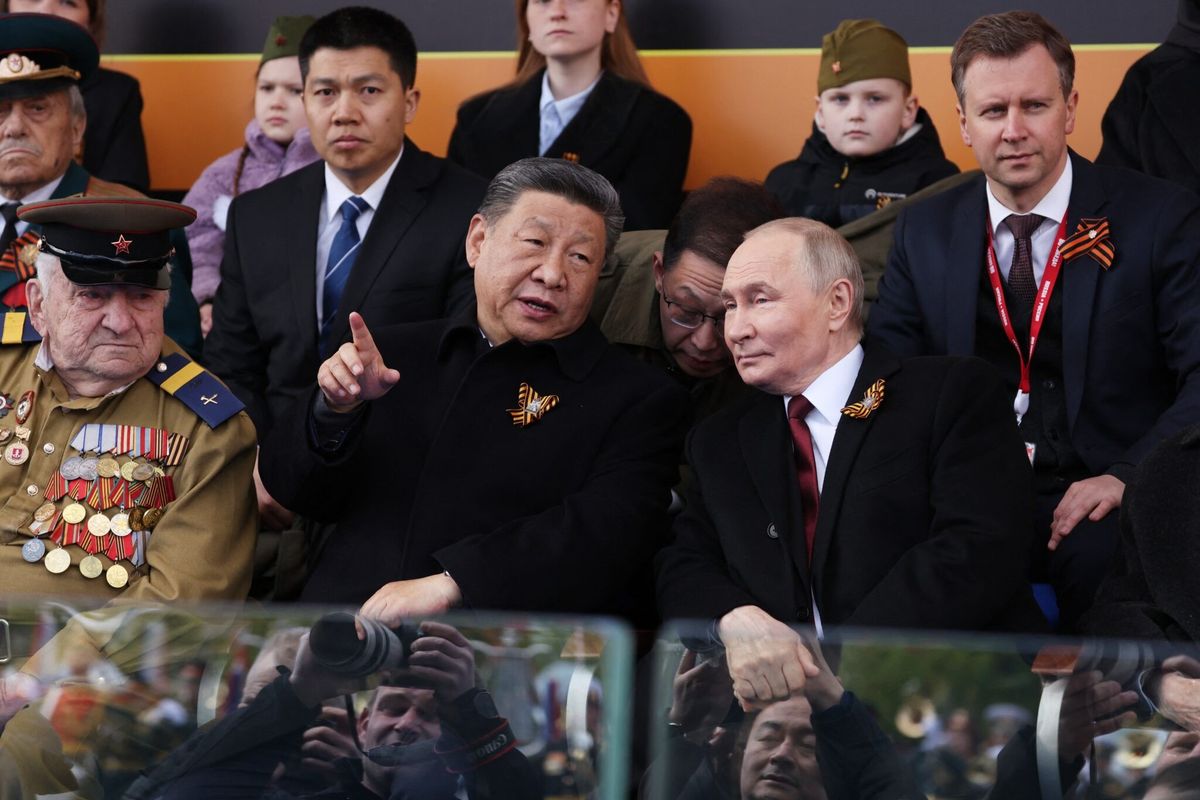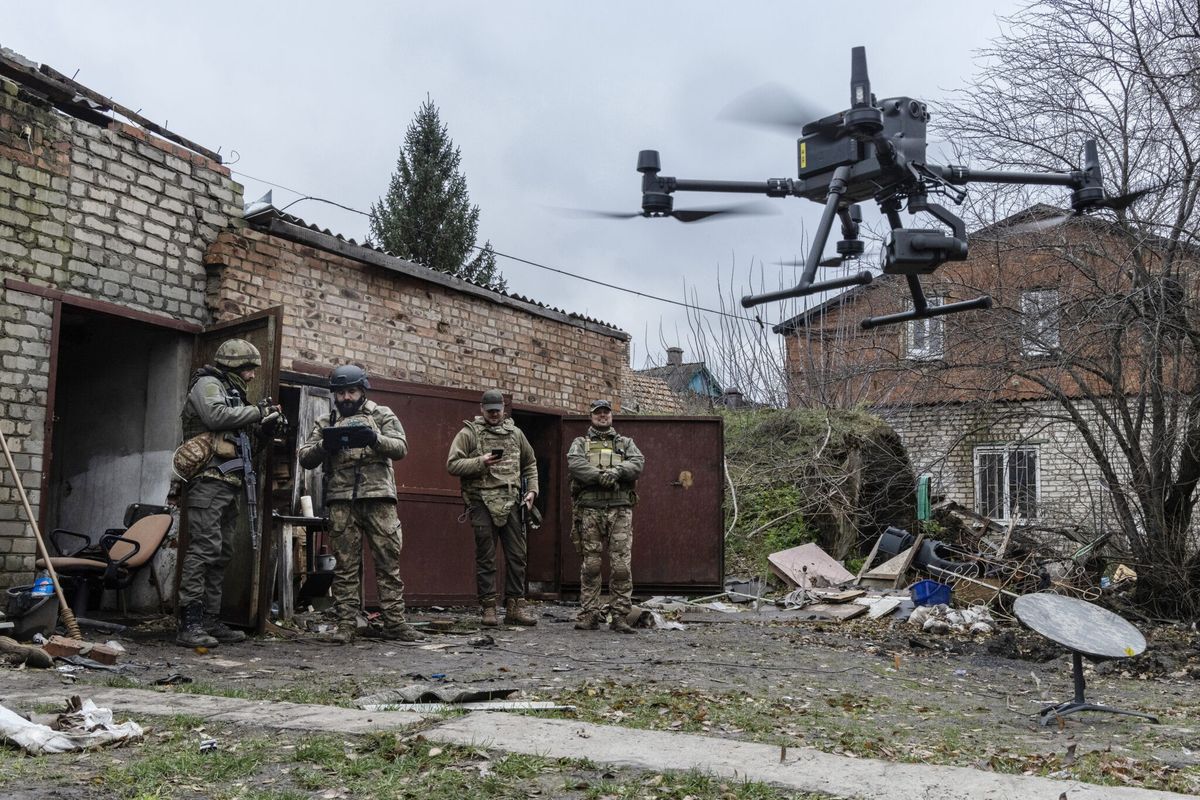DEEP DIVE — In at least five battleground states Tuesday, polling places were targeted by bomb threats, “many of which appear to originate from Russian e-mail domains,” according to the FBI. While the bureau found no evidence of actual bombs, there were dozens of threats, many of which led to evacuations and delays or disruptions in the voting. Taken together, the hoaxes represented a stunning moment for a U.S. election: bomb threats traced to another country, aimed at disrupting the American electoral process.
"They're up to mischief, it seems,” said Georgia's Secretary of State, Brad Raffensperger, who echoed the FBI statement and blamed Russia for the bomb threats. A senior official in Raffensperger's office, speaking on condition of anonymity, told Reuters that the Georgia threats were sent from email addresses that had been used by Russians trying to interfere in past U.S. elections.
“They don't want us to have a smooth, fair and accurate election, and if they can get us to fight among ourselves, they can count that as a victory," Raffensperger told reporters.
Whoever sent the threats had a keen sense of the American electoral landscape. The emails were sent to polling locations in five states – Georgia, Michigan, Arizona, Wisconsin and Pennsylvania – that were among the most closely contested in the nation. An FBI official said Georgia alone received more than two dozen threats, most of which targeted Fulton County, which is home to much of the city of Atlanta. DeKalb County was also targeted, and election officials there said they halted voting at five polling stations to sweep the sites for any explosive devices.
Evacuations and delays were also reported in Wisconsin and Arizona. Adrian Fontes, the Arizona secretary of state, used colorful language to describe threats that had taken aim at his state.
"[Russian President] Vladimir Putin is being a prick," Fontes told Reuters.
A new tactic?
There had been no shortage of warnings from the U.S. intelligence community (IC) prior to the vote about potential Russian interference, though bomb threats represented a new tactic.
In the runup to Election Day, the Office of the Director of National Intelligence (ODNI) had issued several advisories about ways in which Russia – and Iran and China as well – were trying to disrupt the process and amplify divisions in the American electorate.
On Monday, the ODNI, FBI, and the Cybersecurity and Infrastructure Security Agency (CISA) released a joint statement in which they warned, for the first time, that Russia's disinformation might "incite violence" by "creating fake articles to undermine the legitimacy of the election, instill fear in voters regarding the election process, and suggest Americans are using violence against each other."
On Tuesday night, U.S. intelligence officials again warned that Russian actors had manufactured fake videos aimed at the American electorate, including some that officials said had purported to be official FBI communications. One was “a fabricated FBI written statement warning media and bloggers against publishing information about violence at polling stations.” The IC statement said the Russian authors had tried to make it appear that the FBI was suppressing the facts about violent Election Day incidents, in the belief that informing the public "may provoke a spontaneous increase in such incidents.”
According to the FBI, the Russians also tried to plant a false account of malfunctioning voting machines and a video suggesting that schools shut down through November 11, on grounds that “the risk of school shooting and riots has increased significantly” because of the U.S. election. These phony stories appeared aimed at provoking Americans to rage.
“Unfortunately, we do have to worry about foreign interference in U.S. elections,” Glenn Gerstell, former General Counsel at the National Security Agency, told The Cipher Brief last month. “We saw this back in 2016, where Russia attempted to influence the presidential elections. The pattern continues, with disinformation and attempts to interfere in political campaigns being the primary tactics.”
Some of the earlier Russian tactics during this year's campaign appeared to directly target Kamala Harris, the Vice President and Democratic Party presidential nominee. In September, the Microsoft Threat Analysis Center revealed that Russia-linked trolls operating under the name Storm-1516 had posted a staged video falsely claiming that in 2011, Harris had been involved in a hit-and-run accident that paralyzed a girl. The same group posted another fabricated video which purported – falsely – to show black male Harris supporters beating up a white woman who had attended a rally in support of the Republican Party candidate, Donald Trump.
As for the Election Day bomb threats, CISA director Jen Easterly said that "while disruptive," they had ultimately done limited damage to the process. She urged local officials and the public to remain vigilant "for continued attempts by our foreign adversaries to use false narratives and disinformation to undermine American confidence and the legitimacy of elections."
For its part, Russia denied any involvement in the bomb threats. The Russian embassy in Washington called the FBI statements of Russian involvement "malicious slander."
"We would like to emphasize that Russia has not interfered and does not interfere in the internal affairs of other countries, including the United States," the embassy said in a statement. "As President Vladimir Putin has repeatedly stressed, we respect the will of the American people."
Elaine Shannon contributed reporting.
Read more expert-driven national security insights, perspective and analysis in The Cipher Brief.














